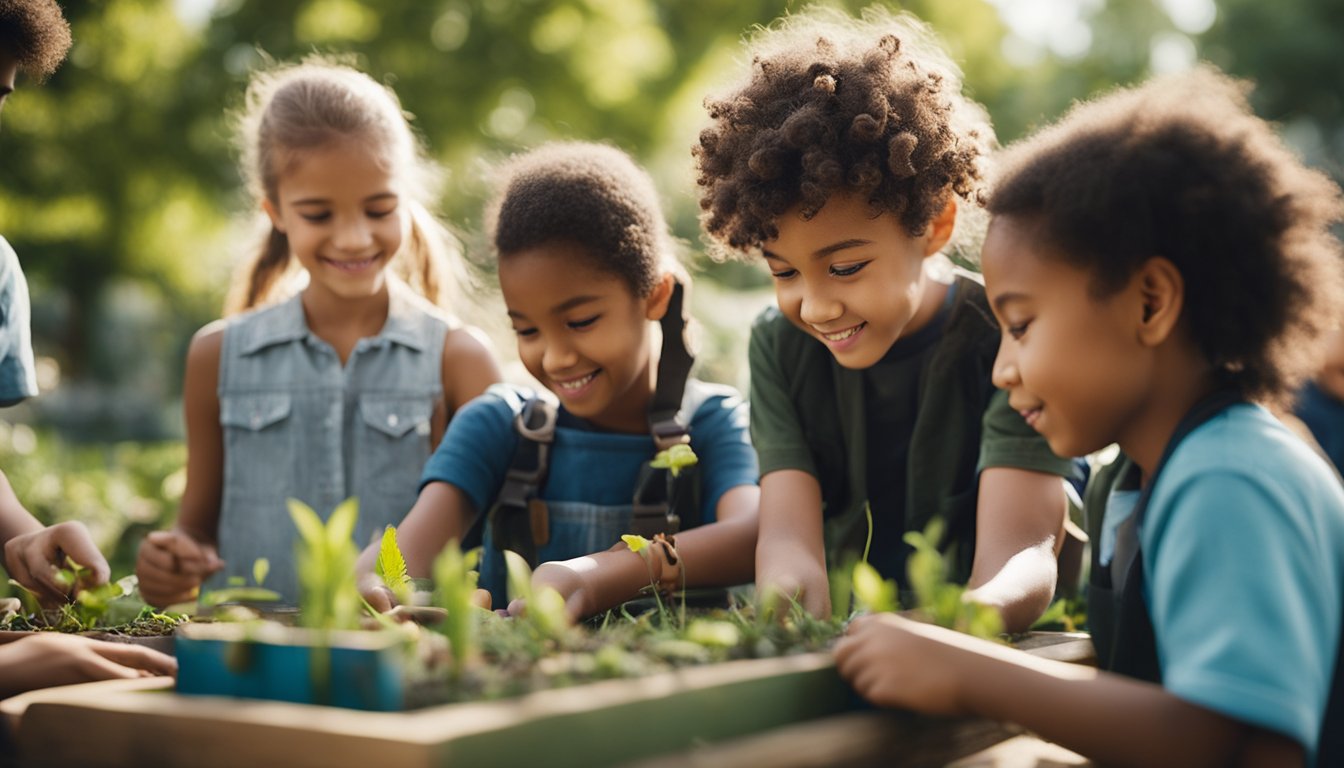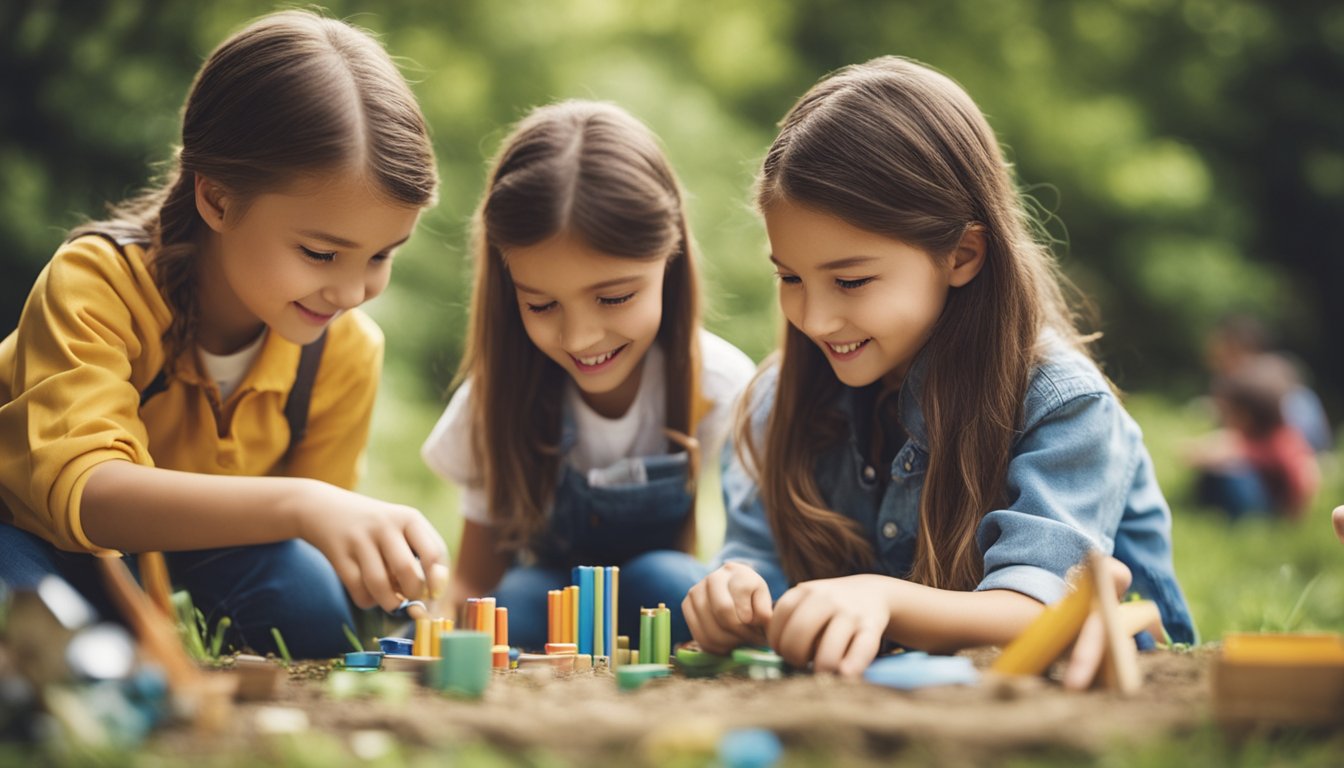Late updated: 21 Nov 2024 15:11
Written by:
Exploring Alternative Education Methods for Children: Innovative Approaches for the Future
As parents and educators, we often find ourselves questioning whether traditional education effectively meets the diverse needs of every child. Alternative education methods have emerged as a powerful response, challenging conventional learning systems by emphasising personalised learning. These models cater to individual interests and abilities, fostering environments where children can flourish academically, socially, and emotionally.

We see this growing interest reflected in various alternative educational models, such as Montessori, Waldorf, and the Sudbury model. Each offers a unique philosophy that encourages independent thought, creativity, and active participation in the learning process. The adaptability of these approaches allows us to tailor education to suit the distinct learning styles of our children.
Alternative education not only promotes academic excellence but also nurtures a child's sense of self and community. By prioritising children's voices and choices in the learning landscape, we empower them to take responsibility for their educational journey, which is key to their holistic development.
Key Takeaways
- Alternative education prioritises personalised learning.
- Various models support different learning styles and needs.
- Promotes holistic development and community involvement.
Philosophies and Approaches to Alternative Education
Alternative education methods provide unique ways for children to learn by emphasising different philosophies and approaches that cater to distinct needs and preferences. Each model promotes attributes like creativity, personalised learning, and self-directed education, appealing to a diverse range of learning styles.
Montessori Education
Montessori education is celebrated for its emphasis on self-directed learning and independence, designed around the developmental stages of children. Originating from the work of Dr Maria Montessori, this approach encourages exploratory and hands-on learning experiences.
In Montessori schools, classrooms are often mixed-age environments, fostering collaboration among students. Materials and activities are meticulously curated to promote cognitive and social development, allowing children to choose their learning paths. This education model emphasizes practical life skills and nurtures a child’s natural curiosity, which is especially beneficial in early childhood education.
Waldorf Education
Waldorf education centres on creativity and artistic expression, which are integral components of this approach. Developed by Rudolf Steiner, Waldorf schools provide a nurturing environment where academic learning is combined with arts and crafts, music, and movement.
Waldorf classrooms are designed to be warm and inviting, encouraging imagination and a deep connection to nature. Learning is structured around a “main lesson,” focusing on specific topics for extended periods. This allows students to fully immerse themselves in the material, fostering holistic development and balancing intellectual, practical, and artistic activities.
Reggio Emilia and Unschooling
The Reggio Emilia approach originated in Italy and is renowned for child-centred learning, deeply rooted in respect for individual interests and the creation of a supportive community. It promotes self-regulation, collaboration, and exploration. Learning environments are seen as “third teachers,” integral to the developmental process.
Unschooling differs in being more informal but aligns with similar tenets, supporting self-directed education driven by the child’s passions and inclinations. Both methods are highly personalised, focusing on child development through real-world experiences rather than predetermined curricula. These approaches particularly shine in early childhood programmes where fostering innate curiosity is key.
Implementation and Impact of Alternative Education

We explore how alternative education methods influence young learners, particularly in accommodating diverse needs, enhancing assessment practices, and inspiring lifelong love for learning.
Special Education and Diverse Learning Styles
Incorporating special education needs within alternative education settings is essential. We find that diverse learning styles are more readily accommodated in environments like Montessori and Waldorf schools, where approaches are tailored to individual needs rather than standard curricula. Special education students benefit from these personalised methods, gaining access to learning activities that match their unique abilities and interests.
Alternative schools often leverage flexible teaching strategies, such as project-based learning, which supports critical thinking development. This adaptability encourages students to engage more deeply with the material. Our commitment to diverse educational methodologies reflects an understanding that one size does not fit all, recognising the importance of catering to individual learning styles.
Assessment and Parental Involvement
Traditional methods of assessment, such as standardised testing, often fail to capture a child's complete abilities, especially in early primary education. In alternative education settings, assessments are frequently more qualitative and ongoing, allowing for a richer picture of a student's progress. We use methods like portfolio reviews and teacher evaluations, which consider students' comprehension and creativity over rote memorisation.
Parental involvement is a cornerstone of these alternative education systems. Regular communication and feedback loops between parents and educators are prioritised, strengthening the learning experience. This collaboration empowers parents to contribute actively to their child's educational journey, fostering an environment where students of kindergarten age and beyond feel supported both at home and school.
Creating a Lifelong Love for Learning
Fostering a lifelong love for learning is a critical goal in alternative education methods. With a focus on nurturing curiosity, these methods often encourage students to explore subjects more deeply. In settings such as homeschool environments and charter schools, children aren't limited by rigid curricula, allowing exploration and enthusiastic engagement with topics of interest.
Educators in these environments often focus on the intrinsic motivations of students. By encouraging self-directed learning and facilitating hands-on activities that relate to real-world situations, children's natural curiosity is sparked, leading them to lifelong learning and personal growth. Providing varied educational experiences aligns with our objective to instill a sustained passion for learning in every student.
Frequently Asked Questions

In this section, we address common queries regarding alternative education methods for children. We explore different approaches, their impact on development, and the factors affecting their integration into the curriculum.
What are considered alternative educational approaches for young learners?
Alternative education includes methods like Montessori and Waldorf, known for their emphasis on experiential learning. These approaches often foster creativity and independence by allowing children to learn at their own pace. We also see methods such as unschooling and Reggio Emilia, which focus on tailoring learning experiences to individual student interests.
How can alternative pedagogies enhance the learning experience in primary education?
Alternative pedagogies often prioritise personalised learning, aligning teaching methods with each child's unique needs. By doing so, these approaches can promote critical thinking and creative problem-solving. They strive to create engaging environments where students are encouraged to explore their interests freely, leading to a more meaningful and enjoyable learning experience.
Which factors should be considered when integrating non-traditional teaching methods into the curriculum?
When integrating alternative methods, factors such as the school’s educational philosophy, available resources, teacher training, and parental support are critical. It is essential to ensure that these methods align with educational goals and government standards. Flexibility in adapting the curriculum to accommodate varied learning styles is also important for successful implementation.
In what ways does alternative education impact child development and learning outcomes?
Alternative education can positively impact child development by supporting intellectual and emotional growth through customised learning experiences. These methods often enhance student motivation, engagement, and self-reliance. Children may also develop stronger interpersonal skills and a better capacity for independent thought, leading to diverse learning outcomes.
How do educators assess the effectiveness of alternative teaching strategies?
Effectiveness is typically evaluated through continuous observation, assessments tailored to individual progress, and student feedback. Educators often use portfolios and project-based evaluations to understand student development. These assessments can help in adjusting teaching strategies to better meet the educational needs of students within an alternative framework.
What are the challenges and benefits of implementing alternative learning techniques in educational institutions?
One key challenge is ensuring consistency and standardisation across different learning environments. Achieving accreditation can also be complicated for some alternative institutions. Nonetheless, the benefits include fostering a love for learning, developing critical life skills, and providing a more inclusive education system that respects diverse learners' needs and backgrounds.
